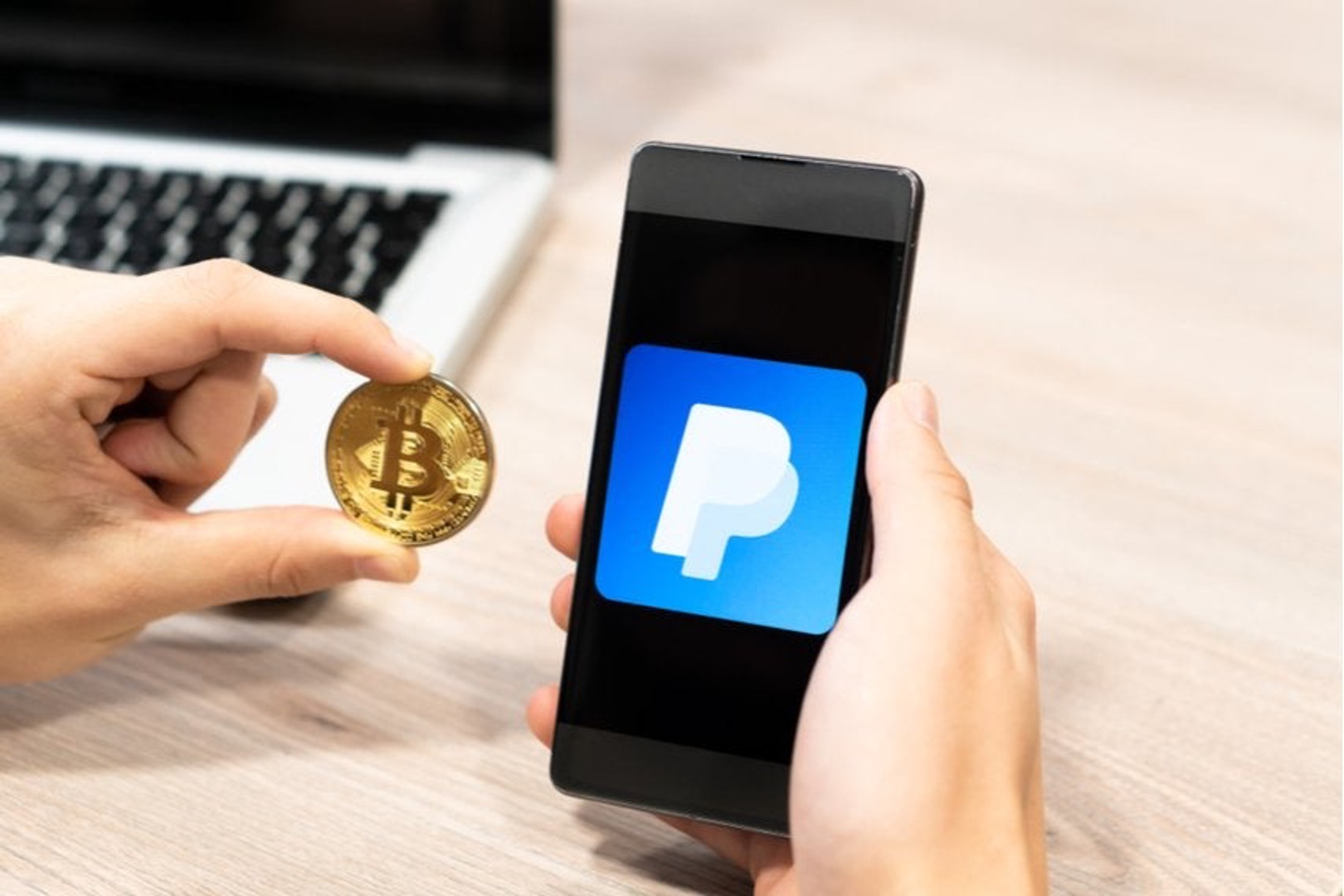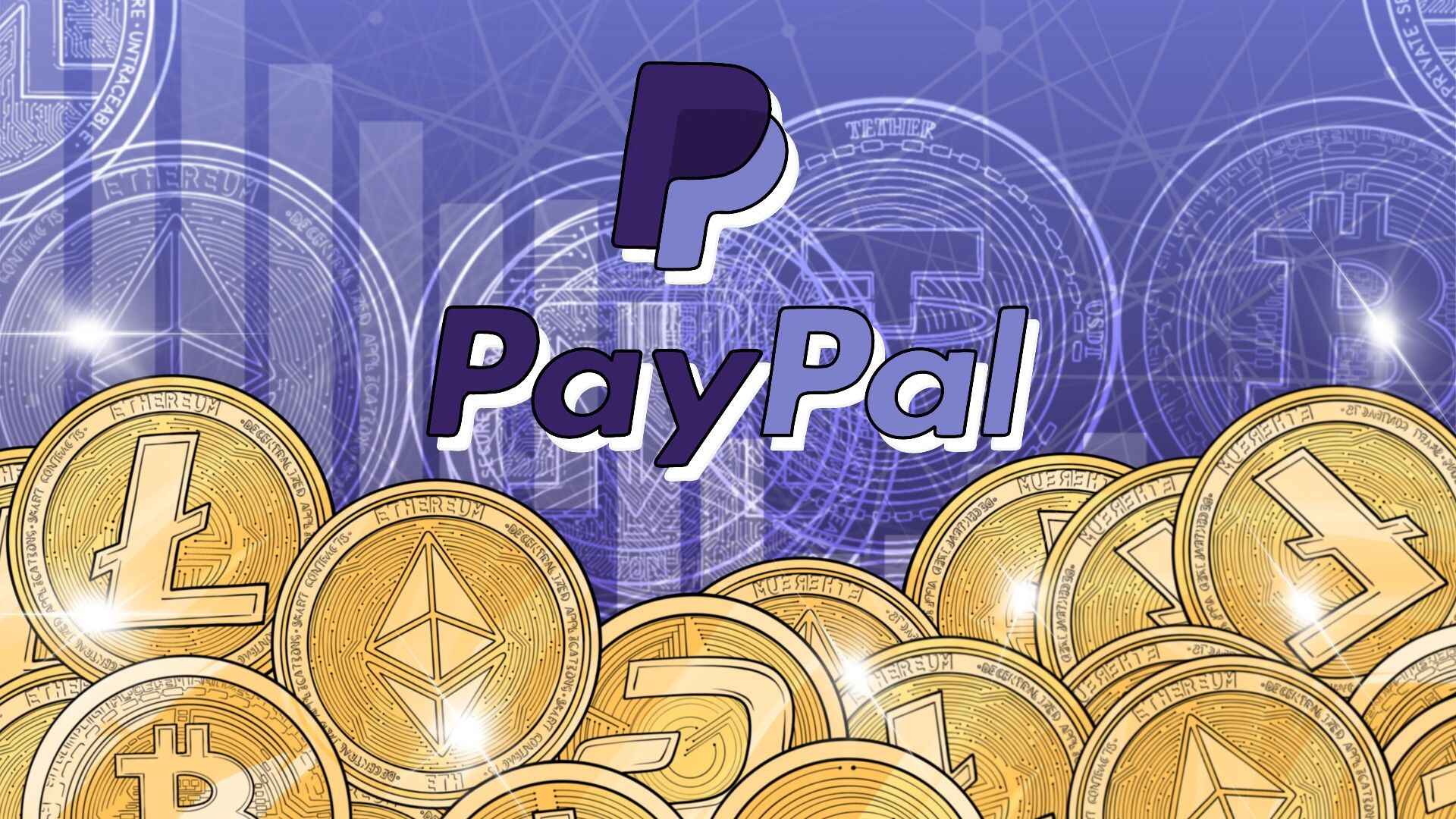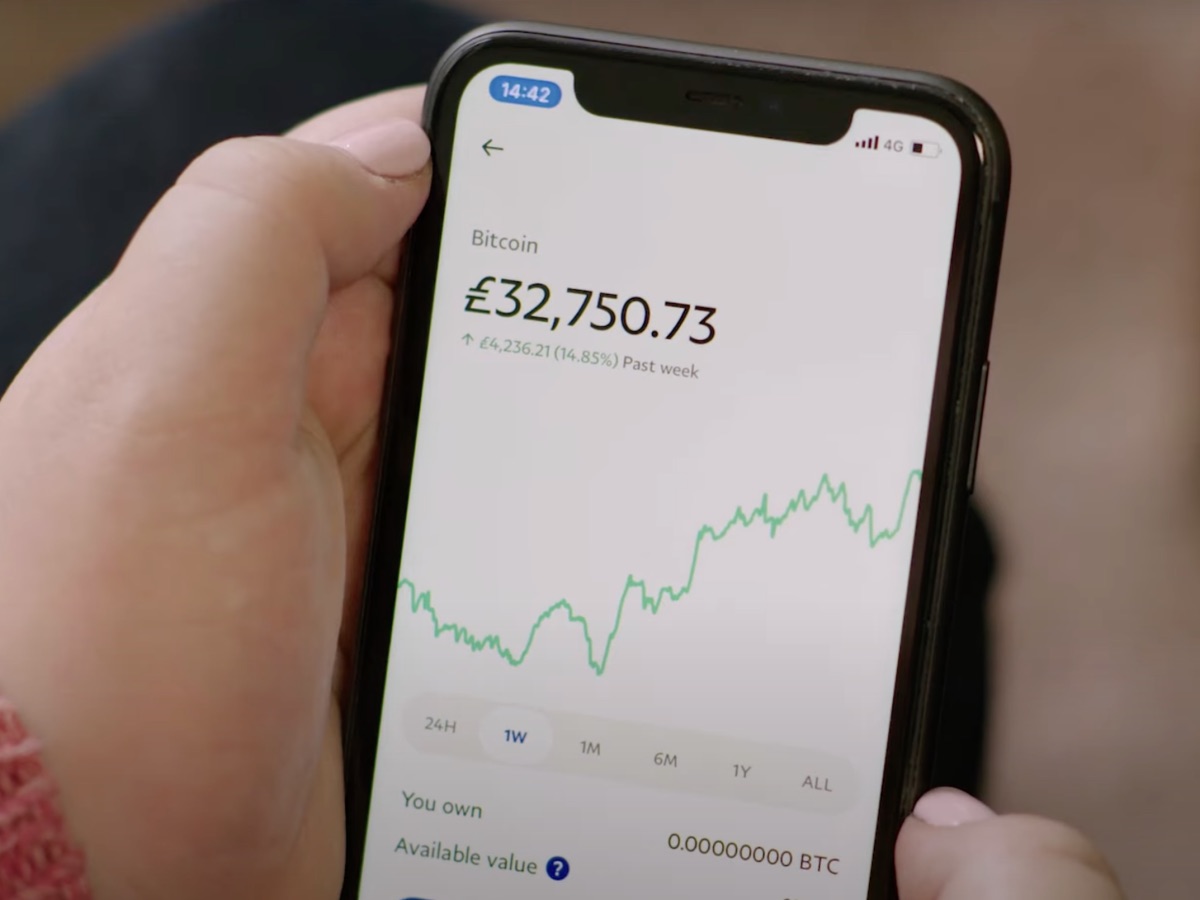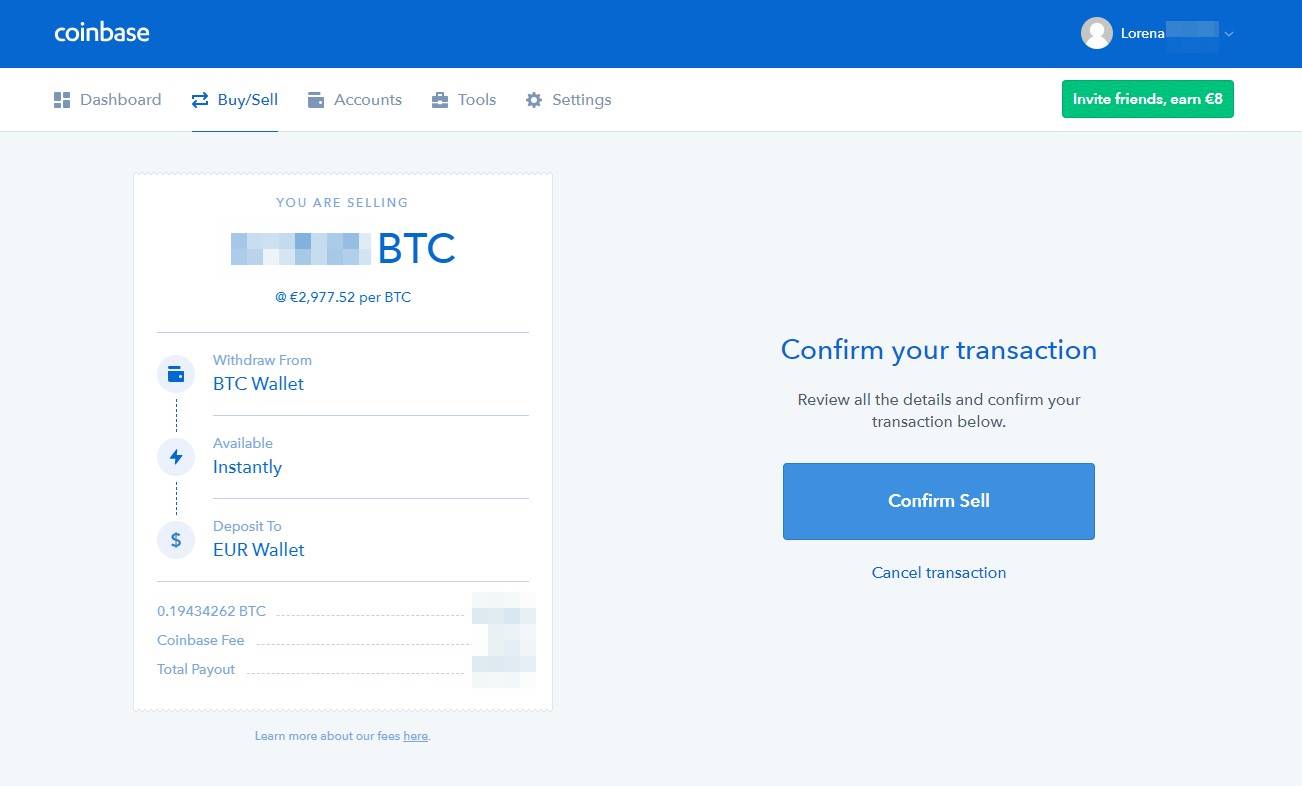Introduction
Welcome to the world of Bitcoin, the digital currency that has revolutionized the way we transact and pay for goods and services. Over the past decade, Bitcoin has gained immense popularity and has become a viable alternative to traditional forms of payment. Whether you are a business owner looking to accept Bitcoin payments or an individual interested in using Bitcoin for everyday transactions, this article will guide you through the process and provide you with all the necessary information you need to know.
Bitcoin was created in 2009 by an anonymous person or group of people using the name Satoshi Nakamoto. It is a decentralized digital currency, meaning that it operates without the need for a central authority or government control. Transactions made with Bitcoin are recorded on a public ledger called the blockchain, ensuring transparency and security.
One of the main reasons why Bitcoin has gained so much popularity is its potential for fast, secure, and low-cost transactions. Unlike traditional payment methods that involve intermediaries such as banks, Bitcoin eliminates the need for third parties, reducing transaction fees and processing times. Additionally, Bitcoin offers a level of privacy that is unmatched by traditional payment systems.
In this article, we will guide you through the process of setting up a Bitcoin wallet, buying Bitcoin, and accepting Bitcoin payments. We will also explain how to pay using Bitcoin for your everyday purchases. Whether you are a seasoned Bitcoin user or just starting out, this article will provide you with valuable insights and practical tips to make the most out of your Bitcoin transactions.
What is Bitcoin?
Bitcoin is a decentralized digital currency that allows users to make secure, peer-to-peer transactions without the need for intermediaries such as banks or governments. It was invented in 2009 by an anonymous person or group of people using the name Satoshi Nakamoto.
Unlike traditional fiat currencies, such as the US dollar or the euro, Bitcoin operates on a technology called blockchain, which is a public ledger that records all the transactions made using Bitcoin. This decentralized nature of Bitcoin means that no single entity has control over the currency, making it resistant to censorship and manipulation.
Bitcoin is created through a process known as mining. Miners use powerful computers to solve complex mathematical problems, and in return for their computational efforts, they are rewarded with newly created Bitcoins. This process ensures the security and integrity of the Bitcoin network.
One of the key features of Bitcoin is its limited supply. There will only ever be 21 million Bitcoins in existence, which means that it is a deflationary currency. This scarcity has contributed to the increase in the value of Bitcoin over time.
Bitcoin transactions are conducted using cryptographic keys. Each user has a public key, which acts as their address and is used to receive funds. To send Bitcoin, the user needs to have a private key, which is a secret code that grants access to their funds. This cryptographic system ensures the security and integrity of Bitcoin transactions.
Bitcoin has gained popularity for its potential to revolutionize financial transactions. It allows for fast, secure, and low-cost international transfers, making it an attractive option for remittances and cross-border payments. Additionally, Bitcoin offers a level of privacy that is unmatched by traditional financial systems, allowing users to have control over their personal information.
Overall, Bitcoin is a groundbreaking innovation that has the potential to reshape the future of finance. Its decentralized nature, limited supply, and secure transaction system make it an appealing option for individuals and businesses alike.
Why Should You Use Bitcoin for Payments?
Bitcoin offers several advantages when it comes to making payments compared to traditional financial systems. Here are some compelling reasons to consider using Bitcoin:
1. Decentralization and Control: Bitcoin operates on a decentralized network, meaning that no single entity has control over the currency. This gives users greater control over their funds and eliminates the need for intermediaries such as banks or payment processors. With Bitcoin, you are in control of your money.
2. Lower Transaction Fees: Traditional payment methods often involve fees charged by banks, credit card companies, and other intermediaries. In contrast, Bitcoin transactions typically come with lower fees, especially for international transfers. This can result in significant cost savings, especially for businesses that deal with frequent cross-border transactions.
3. Fast and Secure Transactions: Bitcoin transactions are processed quickly, usually within minutes, regardless of geographical location. The cryptographic technology used in Bitcoin ensures the security and integrity of transactions, protecting your funds from unauthorized access or tampering.
4. Privacy: Bitcoin offers a certain level of privacy compared to traditional financial systems. While Bitcoin transactions are recorded on the blockchain, personal information is not attached to those transactions. This anonymity can appeal to individuals who value their privacy and want to maintain control over their financial information.
5. Global Accessibility: Bitcoin is a global currency that can be accessed by anyone with an internet connection. This accessibility makes it particularly useful for individuals in countries with limited banking infrastructure or unstable economies. Bitcoin provides an alternative means of accessing financial services and participating in the global economy.
6. Protection against Inflation: Bitcoin’s limited supply and the decentralized nature of its network make it resistant to inflation. Unlike traditional fiat currencies that can be subject to government manipulation and inflation, the scarcity of Bitcoin ensures its value over time. This makes it an attractive store of value for individuals looking to protect their wealth.
7. Innovation and Future Potential: Bitcoin is at the forefront of technological innovation, with continuous development and improvement of its underlying infrastructure. As the cryptocurrency ecosystem evolves, new applications and services are emerging, offering exciting possibilities for businesses and individuals. By embracing Bitcoin, you become part of this growing digital economy.
In summary, Bitcoin offers numerous advantages for making payments, including decentralization, lower transaction fees, fast and secure transactions, privacy, global accessibility, protection against inflation, and future potential for innovation. Whether you are an individual or a business owner, Bitcoin can provide you with a more efficient, secure, and versatile payment solution compared to traditional financial systems.
Setting Up a Bitcoin Wallet
In order to store, send, and receive Bitcoin, you will need to set up a Bitcoin wallet. A Bitcoin wallet is a digital wallet that securely stores your Bitcoin and allows you to manage your transactions.
There are several types of Bitcoin wallets to choose from, each with its own benefits and considerations:
1. Software Wallets: Software wallets are applications that you can download and install on your computer or smartphone. These wallets offer a good balance between security and convenience. Popular software wallets include Electrum, Exodus, and Jaxx.
2. Hardware Wallets: Hardware wallets are physical devices that store your Bitcoin offline, providing an extra layer of security. These wallets are often regarded as the most secure option for storing large amounts of Bitcoin. Examples of hardware wallets include Ledger Nano S, Trezor, and KeepKey.
3. Web Wallets: Web wallets are Bitcoin wallets that are accessed through a web browser. They are typically hosted by a third-party service provider, making them easy to use and accessible from any device with an internet connection. However, web wallets come with a higher risk of security breaches. Popular web wallets include Coinbase, Blockchain.com, and BitGo.
4. Paper Wallets: Paper wallets are physical printouts or handwritten copies of your Bitcoin public and private keys. They are considered one of the most secure methods of storing Bitcoin as they are not susceptible to hacking or malware attacks. However, managing paper wallets can be more technically complex.
Once you have chosen a wallet type, follow these steps to set up your Bitcoin wallet:
1. Download the Wallet Software: If you have opted for a software wallet, visit the official website of the wallet provider and download the software for your operating system.
2. Install the Wallet Software: Follow the installation instructions provided by the wallet software. Make sure to choose a strong password for your wallet to protect it from unauthorized access.
3. Generate a New Wallet: After installing the wallet software, you will be prompted to generate a new wallet. This will create a unique set of public and private keys that are used to access and manage your Bitcoin.
4. Backup Your Wallet: It is crucial to back up your wallet to safeguard your Bitcoin in case of a hardware failure or device loss. Most wallet software will provide a backup option, usually in the form of a recovery phrase or a backup file. Follow the instructions to create and securely store your wallet backup.
5. Receive and Send Bitcoin: With your wallet set up, you can now receive Bitcoin by providing your wallet address to the sender. To send Bitcoin, enter the recipient’s wallet address and the amount you wish to send. Double-check all the information before confirming the transaction.
Remember to keep your wallet software and devices updated to ensure the latest security features are in place. Regularly review and follow best practices for securing your Bitcoin wallet, such as enabling two-factor authentication and using strong, unique passwords.
Setting up a Bitcoin wallet is an essential step in getting started with Bitcoin. Choose a wallet that meets your needs in terms of security, convenience, and accessibility. Once your wallet is set up, you can start securely storing, sending, and receiving Bitcoin.
Buying Bitcoin
Now that you have your Bitcoin wallet set up, you may be wondering how to acquire Bitcoin. There are several methods for buying Bitcoin, depending on your preferences and location. Here are some common ways to purchase Bitcoin:
1. Cryptocurrency Exchanges: Cryptocurrency exchanges are online platforms where you can buy and sell Bitcoin. They act as intermediaries that facilitate the exchange between buyers and sellers. Some popular cryptocurrency exchanges include Coinbase, Binance, and Kraken. To purchase Bitcoin on an exchange, you will usually need to create an account, complete a verification process, deposit funds into your account, and then place an order to buy Bitcoin at your desired price.
2. Peer-to-Peer (P2P) Trading: P2P trading platforms connect buyers and sellers directly, allowing you to purchase Bitcoin from individuals instead of going through an exchange. Examples of P2P trading platforms include LocalBitcoins and Paxful. These platforms usually provide an escrow service to ensure secure transactions between buyers and sellers.
3. Bitcoin ATMs: Bitcoin ATMs are machines that allow you to purchase Bitcoin using cash or debit/credit cards. These machines are connected to the internet and function similarly to regular ATMs. You can find Bitcoin ATMs in various locations worldwide, and they provide a convenient way to buy Bitcoin instantly.
4. Over-the-Counter (OTC) Trading: OTC trading involves purchasing Bitcoin directly from a seller outside of a traditional exchange. OTC trades are typically conducted between institutions or high-net-worth individuals. OTC trading offers privacy and the ability to execute larger transactions that may not be available on public exchanges.
5. Peer-to-Peer Marketplaces: Peer-to-peer marketplaces, like LocalBitcoins or Bisq, allow buyers and sellers to connect directly and negotiate the terms of the transaction. These platforms provide a wide range of payment options and allow you to connect with sellers in your local area or internationally.
Before making a purchase, it is important to consider factors such as trading fees, security measures, liquidity, and the reputation of the platform or seller. It is recommended to do thorough research and choose a reputable and trusted platform to ensure a safe buying experience.
Once you have acquired Bitcoin, it will be stored in your wallet. Make sure to secure your wallet and store your private keys safely to protect your Bitcoin from unauthorized access.
It’s worth noting that the price of Bitcoin can be volatile, so it’s important to be aware of market trends and consider your investment strategy. As with any investment, only invest what you can afford to lose, and seek advice from financial professionals if needed.
Buying Bitcoin provides you with the opportunity to participate in the growing cryptocurrency ecosystem and potentially benefit from the increasing value of Bitcoin over time. By exploring the various buying methods and staying informed about the market, you can start building your Bitcoin portfolio and take advantage of the exciting opportunities presented by this digital currency.
Accepting Bitcoin Payments
If you are a business owner or service provider, accepting Bitcoin payments can open up a new world of possibilities and benefits. Here is a guide on how to start accepting Bitcoin as a payment method:
1. Choose a Payment Processor: To accept Bitcoin payments, you will need a payment processor that can handle the transactions and convert them into your local currency if desired. Some popular payment processors for Bitcoin include BitPay, CoinGate, and Coinbase Commerce. Research and choose a payment processor that suits your business needs and integrates well with your existing payment systems.
2. Set Up a Bitcoin Wallet: To receive Bitcoin payments, you will need to have a Bitcoin wallet. Set up a Bitcoin wallet specifically for your business, separate from your personal wallet. This will help you keep track of your business transactions and ensure accounting accuracy.
3. Display Your Bitcoin Payment Option: Make sure your customers know that you accept Bitcoin as a payment method. Add a Bitcoin payment option to your website, along with other traditional payment methods. You can display the accepted cryptocurrencies and provide customers with instructions on how to make a payment using Bitcoin.
4. Provide Clear Instructions: Make the payment process as easy as possible for your customers. Provide clear step-by-step instructions on how to make a Bitcoin payment on your website or during the checkout process. Include the necessary payment details such as the Bitcoin address or QR code.
5. Monitor and Confirm Payments: Once a customer makes a Bitcoin payment, it is important to monitor and confirm the transaction. Most payment processors will provide real-time notifications and updates on the status of the payments. Regularly check your Bitcoin wallet and verify that payments have been received and confirmed before providing goods or services to the customer.
6. Consider Bitcoin Price Volatility: Bitcoin is known for its price volatility. If you prefer to convert Bitcoin payments into your local currency immediately, your payment processor can assist you with that. Alternatively, you may decide to hold onto some or all of the Bitcoin received and use it as an investment or for future transactions.
7. Educate Your Team: Ensure that your team understands how Bitcoin payments work and are familiar with the process. Provide training and support materials to your staff so that they can assist customers who choose to pay with Bitcoin. This will help create a seamless Bitcoin payment experience for your customers.
8. Promote Bitcoin Payments: Consider promoting the fact that you accept Bitcoin payments through marketing channels such as social media and email newsletters. Highlight the benefits of using Bitcoin for payments, such as faster transactions, lower fees, and enhanced privacy.
By accepting Bitcoin payments, you can tap into a growing market of Bitcoin users and attract customers who prefer using cryptocurrencies for their transactions. It can also help your business stand out from competitors and demonstrate your tech-forward approach.
Keep in mind that while Bitcoin transactions are secure, it is still best practice to follow standard security measures to protect your Bitcoin funds and customer information. Be diligent in keeping your wallets secure, regularly update your software, and implement strong security protocols within your business operations.
As the adoption of Bitcoin continues to expand, accepting Bitcoin payments can position your business for future growth and provide you with a competitive edge in the evolving digital economy.
How to Pay Using Bitcoin
Using Bitcoin to make payments is becoming increasingly popular, offering convenience, security, and global accessibility. Here are the steps to follow to pay using Bitcoin:
1. Obtain a Bitcoin Wallet: To make a payment with Bitcoin, you will need a Bitcoin wallet where you can store your Bitcoin and manage your transactions. Choose a wallet that suits your needs, whether it’s a software wallet on your computer or smartphone, a hardware wallet, a web wallet, or a paper wallet.
2. Get the Recipient’s Bitcoin Address: The recipient of your payment needs to provide you with their Bitcoin address. This is a string of alphanumeric characters that uniquely identifies their wallet. The address may be in the form of a QR code, making it easier to scan.
3. Enter the Payment Details: Open your Bitcoin wallet and select the option to send funds. Enter the recipient’s Bitcoin address or scan the QR code. Double-check that the address is accurate, as Bitcoin transactions are irreversible, and sending to the wrong address may result in the loss of your funds.
4. Specify the Payment Amount: Enter the amount of Bitcoin you wish to send to the recipient. Make sure to verify that the amount is correct and that you have enough Bitcoin in your wallet to complete the transaction, considering any applicable fees.
5. Confirm and Send the Payment: Review the payment details one final time and then click on the “Send” or “Confirm” button in your wallet. The transaction will then be broadcasted to the Bitcoin network, and miners will work to validate and include it in a block on the blockchain.
6. Wait for Confirmation: Bitcoin transactions require confirmation on the blockchain to be considered final. The number of confirmations required may vary depending on the recipient’s preferences or the level of security required. Typically, a few confirmations are sufficient for most transactions, and they are usually completed within minutes.
7. Keep a Record of the Transaction: It is recommended to keep a record of the transaction, including the recipient’s Bitcoin address, the amount sent, and the transaction ID. This information can serve as proof of payment if needed in the future.
When making Bitcoin payments, it’s important to note that transaction fees may be incurred to ensure timely processing of the transaction. These fees can vary depending on network congestion and the transaction size. Higher fees are often associated with faster confirmation times.
Additionally, remember that Bitcoin transactions are irreversible. Once the funds are sent, they cannot be reversed or refunded unless the recipient agrees to send them back. Therefore, it’s crucial to ensure the accuracy of the payment details and only transact with reputable individuals or businesses.
By using Bitcoin for payments, you can enjoy the benefits of faster, more secure transactions, lower fees compared to traditional payment methods, and the ability to transact globally without relying on intermediaries. With more merchants and service providers accepting Bitcoin, paying with cryptocurrency is becoming increasingly convenient and accessible.
Key Terms to Know
As you navigate the world of Bitcoin, familiarizing yourself with key terms and concepts will help you better understand how it works and make informed decisions. Here are some important terms related to Bitcoin:
1. Blockchain: The blockchain is a decentralized public ledger that records all Bitcoin transactions. It serves as a transparent and immutable record of all transactions ever made with Bitcoin.
2. Cryptocurrency: A cryptocurrency is a digital or virtual currency that uses cryptographic technology for secure transactions. Bitcoin is the first and most well-known cryptocurrency.
3. Private Key: A private key is a secret code that is generated by a Bitcoin wallet. It grants the owner access to their Bitcoin funds and should be kept secure and confidential.
4. Public Key: A public key is a publicly accessible address that users share to receive Bitcoin. It acts as a destination address when sending funds from one wallet to another.
5. Wallet: A Bitcoin wallet is a software or hardware tool used to store, send, and receive Bitcoin. It securely holds the private keys necessary for accessing and managing Bitcoin funds.
6. Mining: Mining is the process of verifying and adding new Bitcoin transactions to the blockchain. Miners use specialized hardware and solve complex mathematical problems to secure the network and receive newly minted Bitcoins as a reward.
7. Satoshi: A satoshi is the smallest unit of Bitcoin, representing one hundred millionth of a single Bitcoin. It is named after the pseudonymous creator of Bitcoin, Satoshi Nakamoto.
8. Confirmation: Confirmation refers to the process of validating and including a Bitcoin transaction in a block on the blockchain. The more confirmations a transaction receives, the more secure and finalized it becomes.
9. Exchange: A Bitcoin exchange is a platform where users can buy, sell, and trade Bitcoin for other cryptocurrencies or fiat currencies. Exchanges provide liquidity and serve as a marketplace for buyers and sellers.
10. Fiat Currency: Fiat currency refers to traditional government-issued currencies, such as the US dollar or the euro. Bitcoin can be exchanged for fiat currencies on various platforms and exchanges.
11. SegWit: Segregated Witness (SegWit) is a protocol upgrade implemented on the Bitcoin network to increase transaction capacity and reduce fees. It separates transaction data from the witness data, optimizing block space utilization.
12. Cryptocurrency Wallet: A cryptocurrency wallet is a digital wallet that stores and manages multiple cryptocurrencies, including Bitcoin. It allows users to manage their cryptocurrency holdings in one place.
These key terms provide a foundation for understanding and engaging with Bitcoin and its ecosystem. By familiarizing yourself with these concepts, you can navigate discussions, research, and transactions with confidence. Continually delving deeper into the world of Bitcoin will expand your knowledge and enhance your experience with this groundbreaking digital currency.
Conclusion
Bitcoin has emerged as a game-changer in the realm of finance, offering a decentralized and secure digital currency that is revolutionizing the way we transact and store value. Whether you are an individual looking for an alternative form of payment or a business owner exploring new payment options, Bitcoin provides numerous benefits and opportunities.
In this article, we have explored the basics of Bitcoin, from its decentralized nature and limited supply to its potential for fast and secure transactions. We have discussed the importance of setting up a Bitcoin wallet and provided guidance on buying Bitcoin from various sources.
Moreover, we have delved into accepting Bitcoin payments, emphasizing the advantages it brings to businesses, such as lower transaction fees, faster payments, and the ability to tap into a global market. We have also covered the essentials of paying with Bitcoin, including obtaining a Bitcoin wallet, acquiring the recipient’s Bitcoin address, and completing the payment process.
Furthermore, we have highlighted key terms and concepts that are vital for understanding the intricacies of Bitcoin, such as the blockchain, private and public keys, mining, and confirmation.
As the adoption and use of Bitcoin continue to expand, it is important to stay informed and up-to-date with the latest developments in the world of cryptocurrency. Bitcoin has the potential to reshape the financial landscape, offering individuals and businesses the freedom and flexibility to transact globally, securely, and with reduced fees.
When engaging with Bitcoin, it is crucial to prioritize security and take necessary precautions to protect your personal information and Bitcoin assets. By choosing reputable wallets and platforms, keeping software updated, and adhering to best practices, you can mitigate potential risks and ensure a smooth and secure Bitcoin experience.
Whether you are an early adopter or just stepping into the world of Bitcoin, understanding its fundamentals and exploring its possibilities will empower you to make informed decisions and navigate the exciting world of digital currency with confidence.
So, take the plunge, discover the potential of Bitcoin, and embrace the future of finance.

























